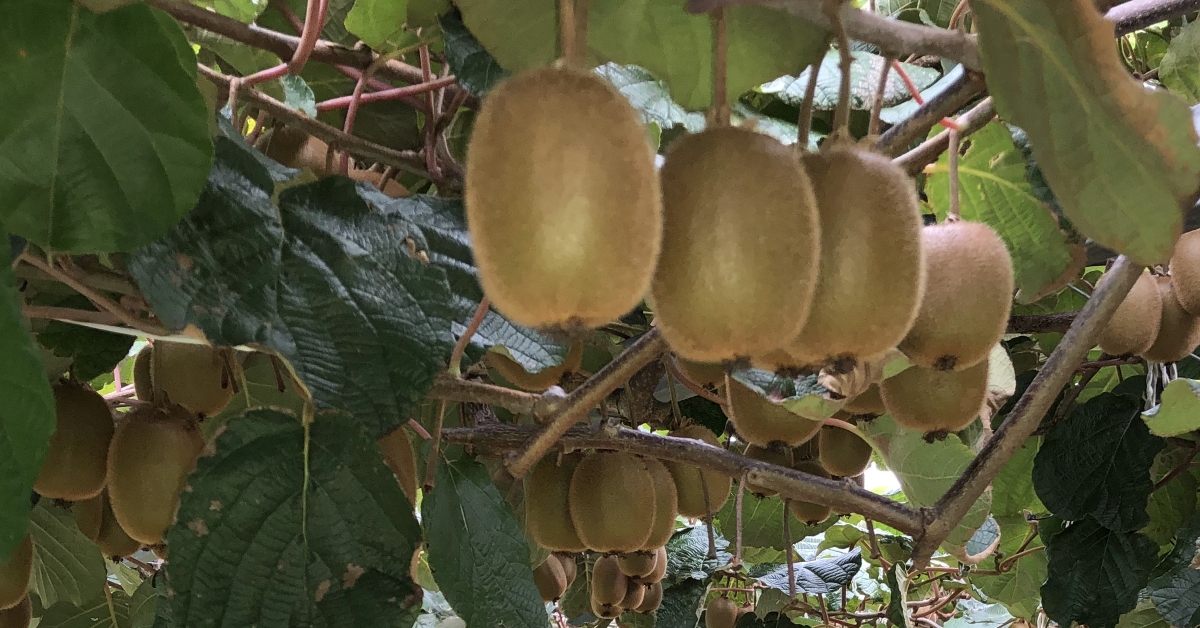“I am the true vine, and my Father is the husbandman. 2 Every branch in me that beareth not fruit he taketh away: and every branch that beareth fruit, he purgeth it, that it may bring forth more fruit. 3 Now ye are clean through the word which I have spoken unto you. 4 Abide in me, and I in you. As the branch cannot bear fruit of itself, except it abide in the vine; no more can ye, except ye abide in me. 5 I am the vine, ye are the branches: He that abideth in me, and I in him, the same bringeth forth much fruit: for without me ye can do nothing. 6 If a man abide not in me, he is cast forth as a branch, and is withered; and men gather them, and cast them into the fire, and they are burned. 7 If ye abide in me, and my words abide in you, ye shall ask what ye will, and it shall be done unto you. 8 Herein is my Father glorified, that ye bear much fruit; so shall ye be my disciples.” (John 15:1-7)
A key indicator that we are nearing the end of the Church Age is the Church’s unfaithfulness. This is not speaking of unsaved church members, but those saved who chose to live disobediently and unrepentant, who follow after “every wind of doctrine” (Ephesians 4:14), “having a form of godliness, but denying the power thereof” (II Timothy 3:5).
Jesus asked this question of His disciples, “When the Son of man cometh, shall he find faith on the earth?” (Luke 18:8). Obviously, Jesus will find faith as far as those saved by faith in His blood (Romans 3:25), but will He find the saved faithful to Him? Will we as the church be faithfully bearing fruit.
Sadly, and exponentially, the farther we advance into these last days, the less we will find professing believers remaining loyal to their Lord and Savior … THIS IS PROPHESIED!
CONTEXT
It is the will of “the husbandman,” God the Father, that each branch be healthy and prosperous in fruit bearing! God the Son, Jesus Christ, is “the true vine.” When a person is born again, they are born out of the Vine and draw their spiritual life from it. the husbandman prunes and purges the branches so that they can produce to their maximum potential.
Many thoughts can go into the pruning of fruit trees in our gardens. For example, when pruning a branch, a gardener never cuts the branch completely from the vine, else it is not pruning. Equally, as believers, we will never be cut off the Vine. Rather, we are pruned back leaving enough branch that we can produce once again for the husbandman. No matter how much we may have blown it, we are never removed from Jesus Christ – there is potential to get right and produce for Almighty God.
There is a progression seen in our fruit bearing.
- John 15:2 – “beareth fruit”
- John 15:2b – “more fruit”
- John 15:5 – “much fruit”
A fruit tree does not produce an abundance of fruit for the first few years, it at all. The natural process of a fruit tree may not reach its potential until after years of pruning and maturity. As believers, God does not expect a new born babe in Christ to be at their full potential the moment they are saved, and actually not for some years to come. In our Christian maturity we work our way from “beareth fruit” through bearing “more fruit” to bearing “much fruit.” Then, John 15:8 goes on to tell us exactly which of these phases glorifies God – when we reach our full potential and we “bear much fruit.”
To work through these fruit bearing phases, we must first know what this fruit is, then the “how to” of bearing fruit.
WHAT IS FRUIT
The definition of “fruit” is a no-brainer. Webster’s 1828, our goto dictionary for the King James Bible, defines fruit as “that which is produced.” Different forms of the word “fruit” is used almost 300 times in the Bible. Within these, there are 3 primary uses: Physical, Spiritual and Evangelical.
- PHYSICAL FRUIT – Seen first in Genesis 1 on Day #3 and #6 of Creation, with trees created to yield their own fruit and man created to be fruitful and multiply his own fruit. God is glorified in this natural process.
“And God blessed them, and God said unto them, Be fruitful, and multiply, and replenish the earth, and subdue it…” (Genesis 1:28a)
- SPIRITUAL FRUIT – Seen in Galatians 5 with either the fruits of the flesh or Fruit of the Spirit. When we produce this Fruit of the Spirit, it is then that God is glorified and we are acceptable unto Him.
“But the fruit of the Spirit is love, joy, peace, longsuffering, gentleness, goodness, faith, Meekness, temperance: against such there is no law.” (Galatians 5:22-23)
“(For the fruit of the Spirit is in all goodness and righteousness and truth;) Proving what is acceptable unto the Lord.” (Ephesians 5:9-10)
- EVANGELICAL FRUIT – Seen throughout the New Testament by our soulwinning efforts. Paul said in Romans 1:13, “I purposed to come unto you, (but was let hitherto,) that I might have some fruit among you also, even as among other Gentiles.” There is fruit waiting for each one of us to pick, to God’s honor and glory:
“Say not ye, There are yet four months, and then cometh harvest? behold, I say unto you, Lift up your eyes, and look on the fields; for they are white already to harvest. And he that reapeth receiveth wages, and gathereth fruit unto life eternal: that both he that soweth and he that reapeth may rejoice together. And herein is that saying true, One soweth, and another reapeth. I sent you to reap that whereon ye bestowed no labour: other men laboured, and ye are entered into their labours.” (John 4:35-38)
Remember, in John 15:8, God is glorified when we reach our potential and bear “much fruit.” PHYSICALLY, God is glorified when we are fruitful, and multiply upon the earth. SPIRITUALLY, God is glorified when we yield wholly to the Spirit. EVANGELISTICALLY, God is glorified when we share the Gospel of Jesus Christ and produce other Christians that do the same.
“And the things that thou hast heard of me among many witnesses, the same commit thou to faithful men, who shall be able to teach others also.” (II Timothy 2:2)
HOW IS FRUIT PRODUCED
Bearing fruit is a direct result of the “purgeth” in John 15:2. purgeth in the English means “to prune.” However, the primary root meaning in the Greek is spiritual and not physical. purgeth in the Greek means “to cleanse of filthy impurity.” This is exactly what is done when we prune a tree physically, not by killing the tree, but helping it to produce much fruit. Spiritually speaking, this is about our cleansing, and not our spiritual death.
Cleansing or “purgeth” or pruning of the branch takes place only through the Word of God. “Now ye are clean through the word which I have spoken unto you.” (John 15:3). Without God’s purging process we can do nothing, “for without me ye can do nothing.” (John 15:5)
John answers the question “how” when several groups of people ask Him in Luke 3.
“Then said he to the multitude that came forth to be baptized of him, O generation of vipers, who hath warned you to flee from the wrath to come? Bring forth therefore fruits worthy of repentance, and begin not to say within yourselves, We have Abraham to our father: for I say unto you, That God is able of these stones to raise up children unto Abraham. And now also the axe is laid unto the root of the trees: every tree therefore which bringeth not forth good fruit is hewn down, and cast into the fire.” (Luke 3:7-9)
Here, John kind of puts himself into the illustration, describing himself as a farmer, chopping down a fruitless tree and watching the vipers flee. John got to the root of the issue and called God’s people to repentance. He was showing them that there is a wrath to come, and the only way to prepare for judgment is to turn from sin by repentance and trust Jesus through faith.
As we see each of these groups, remember the context is speaking of believers and not unbelievers. So, John’s response is not telling any one to do anything to qualify for salvation, but rather to purge something to produce more fruit for their God.
- THE PEOPLE were convicted (Luke 3:10-11). They asked, “What shall we do then?” They were asking, “How do we bear fruit?” John told them to give to those in need – clothing and food.
. - THE PUBLICANS, tax collectors, were convicted (Luke 3:12-13). Tax collectors were hated. They worked for the enemy, the Romans. They cheated their fellow Jews wherever they could to increase their wealth. Under conviction they asked, “what shall we do?” They were asking, “How do we bear fruit?” John told them not to take any more then what was required for taxes, and to go and “steal no more” (Ephesians 4:28). John did not tell them to quit their job, because it is possible to be an honest tax collector. However, if they can’t make an honest living as a tax collector, then repentance means to get another job!
. - THE SOLDIERS, were convicted (Luke 3:14). Like tax collectors, soldiers were hated. They extorted money through fear and violence. They falsely accused whenever they could not get what they were trying to extort. They extorted because they were not “content with your wages” so fear and extortion became customary. Under conviction they asked, “what shall we do?” They were asking, “How do we bear fruit?” Again, John does not tell them to quit their job, but tells them not to abuse their position: don’t falsely accuse anyone, be content with your wages, work honestly as a soldier. However, if they can’t make an honest living as a soldier, then repentance means to get another job!
. - THE RELIGIOUS CROWD, unlike the other, they were unwilling to heed to their conviction and repentance. The relied wholly on their religion saying “We have Abraham to our father” causing John, under the inspiration of the Holy Spirit, to come at them hard as a “generation of vipers.” There was equal hope for the religious crowd, but their pride would keep them from the answer, repentance.
Each group John worked with was in need of repentance due to the exact same reason, the love of money or materialism:
- THE PEOPLE – To share their coats and meat they had to repent of their selfishness and greed
. - THE PUBLICANS – To not “exact no more than that which is appointed you” they had to repent of their selfishness and greed
. - THE SOLDIERS – To “do violence to no man, neither accuse any falsely; and be content with your wages” they had to repent of their selfishness and greed
. - THE RELIGIOUS CROWD – To “flee from the wrath to come” they had to humble themselves and repent of their selfishness and greed
As for us, the last time we were under conviction, did we asked God what these groups asked John, “And what shall we do?” John 15 tells us that It all revolves around us abiding in Christ, and Luke 3 tells us to abide in Christ requires our repentance and faith.
Are you abiding in Christ? If not, then repent!
Are you abiding in Christ? If so, then John 15:11 concludes by saying you should have “joy” in your Christian walk.
“These things have I spoken unto you, that my joy might remain in you, and that your joy might be full.” (John 15:11)




